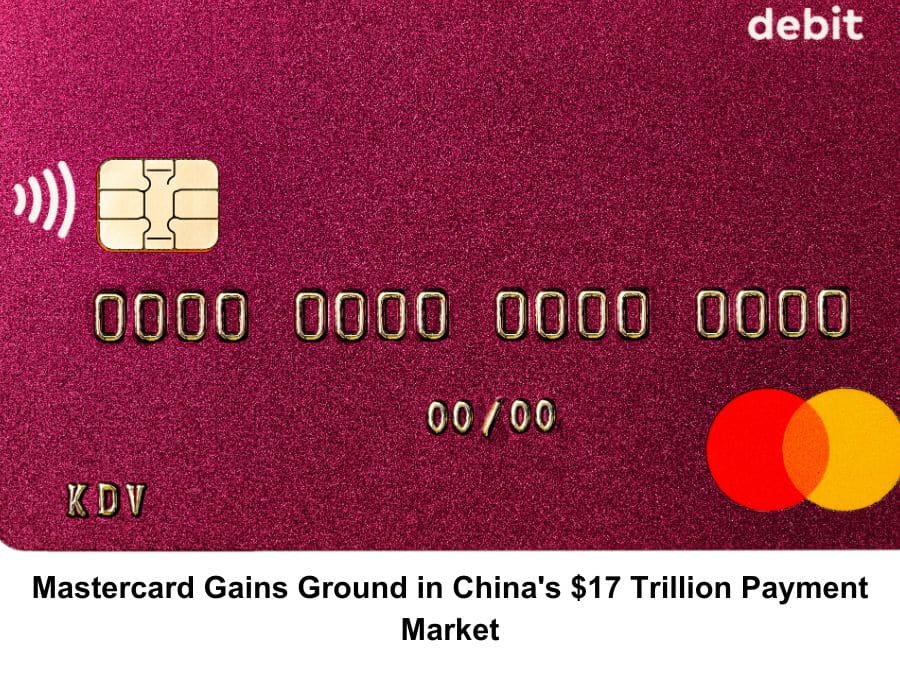
Mastercard has finally penetrated China’s highly coveted domestic payment market in an unprecedented move that marks a significant milestone for international financial services. This breakthrough comes as Mastercard’s joint venture, Mastercard NUCC Information Technology, secured approval from the People’s Bank of China. This pivotal authorization allows the venture to clear domestic payments and offer comprehensive card services for transactions denominated in the Chinese yuan. The announcement on Monday is a testament to Mastercard’s consistent efforts and strategic manoeuvring to tap into the lucrative Chinese market.
China’s $17 trillion annual debit and credit market represents a veritable goldmine for U.S.-based card companies. With a population surpassing 1.4 billion and a burgeoning middle class, the demand for diversified financial services is at an all-time high. This market’s vast potential is further underscored by China’s status as the world’s second-largest economy, trailing only behind the United States. For years, American financial giants have eyed this market, seeking to expand their global footprint and capitalize on the economic opportunities presented by the world’s most populous nation.
However, entering the Chinese market is no easy feat. Mastercard and its U.S.-based counterparts face the daunting challenge of competing with China UnionPay, a dominant force backed by the Chinese government. UnionPay’s entrenched position and widespread acceptance across China pose a significant hurdle for new entrants. Despite these challenges, experts like David Robertson of The Nilson Report believe that American companies can carve out a market share. Robertson points out the sheer size of the opportunity available, suggesting that while UnionPay may be the current heavyweight, the market’s extensive nature allows new players to make significant inroads.
The journey of American Express, which gained entry into China’s domestic market in 2020, serves as a poignant reminder of foreign entities’ challenges. Despite its early entry, the extent of Amex’s success in capturing market share remains ambiguous, illustrating the complex dynamics of China’s financial services sector. Another major player, Visa, is still awaiting approval, highlighting the meticulous and often protracted process of gaining access to this tightly regulated market.
Mastercard’s differentiation strategy may hinge on enhancing digital payment services and fostering partnerships with Chinese banks. With digital wallets like Alibaba Group’s Alipay and Tencent’s WeChat dominating the Chinese payment landscape, Mastercard and Visa could offer valuable expertise to help banks compete more effectively in the digital arena. Additionally, competitive pricing and introducing co-branded cards could serve as crucial levers to attract Chinese banks and consumers.
Yet, the road ahead is fraught with challenges. The reluctance of China’s Government-backed banks to partner with U.S. firms, concerns over data security, and geopolitical tensions represent significant obstacles. The unfolding situation between China and Taiwan could mirror the turmoil experienced when Russia invaded Ukraine in 2022, leading to the suspension of operations by U.S. card companies. Such geopolitical risks underscore the volatile nature of international business and the need for strategic caution.
Despite these challenges, the approval granted to Mastercard signifies a monumental step forward in integrating global financial services. As Mastercard embarks on this new venture, the company’s success or failure will serve as a critical case study for the international financial community. The ability of U.S. card companies to navigate the intricate web of regulations, competition, and geopolitical risks will be closely monitored. Their experiences will offer valuable insights into the complexities of global market expansion, particularly in a market as significant and challenging as China’s Mastercard’s foray into China’s Domestic payment market is more than just a business expansion; it represents a pivotal moment in the ongoing evolution of the global financial landscape. The integration of U.S.-based financial services into CChina’seconomy can foster greater cross-border collaboration, drive innovation, and enhance the efficiency of financial transactions on a global scale. However, the path forward is riddled with uncertainties and challenges requiring strategic foresight, adaptability, and unwavering commitment.
As Mastercard and its peers venture into this new territory, they are not merely competing for a share of China’s vast market but laying the groundwork for the future of international finance. The outcomes of these endeavours will undoubtedly influence the direction of global financial services, shaping how businesses and consumers engage with financial systems across borders. In this dynamic and interconnected world, China’s quest for market share is a bold move towards a more integrated and inclusive global financial ecosystem.





